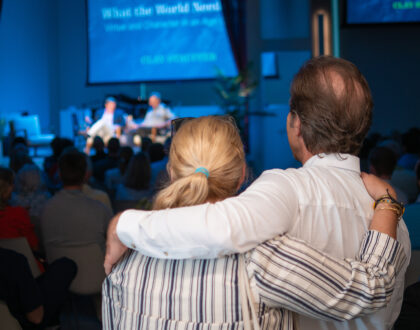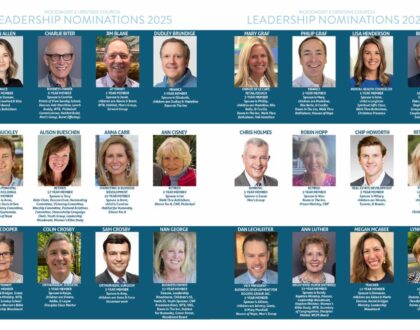Our Ongoing Pursuit of Happiness and Joy

Every human being longs to be happy, but we all recognize that happiness is fleeting. It comes and goes. One day we are up, the next day we’re down. One day we are on top of the world, the next day, the world has run us over.
Our founding fathers said that we have a God-given right to life, liberty, and the “pursuit” of happiness. Everybody enters this pursuit very differently. In his book The Happiness Hypothesis, NYU social psychologist Jonathan Haidt identifies three different theories of human happiness.
The first theory is the “progress principle:” happiness comes from success and acquiring things. This is the principle that dominates our consumer culture. We feel that we will be happier if we make more money, buy a nicer car, a bigger house, or more toys. However, the author of Ecclesiastes figured out just how disappointing this mindset can be when he writes: “Then I considered all that my hands had done and the toil I had spent in doing it, and again, all was vanity and a chasing after the wind.” (Ecc 2:11) Time and time again, we find that the person with the most toys is still not happy or content.
The second theory is the one most common in Buddhism and other eastern religions. “Buddha, Epictetus, and many other sages saw the futility of the rat race and urged people to quit. They proposed a particular happiness hypothesis: Happiness comes from within and it cannot be found by making the world conform to your desires.” The goal here is to move away from desire and attachment because it inevitably leads to suffering. Meditation, contemplation, and yoga are common ways to achieve this. This approach involves trying to not control the uncontrollable. There is great wisdom here. This theory also recognizes the shallowness and superficiality of our materialistic culture. There will always be something newer, shinier, and better to buy.
Haidt concludes that both of these theories are inadequate and he proposes a third theory that he believes is the most convincing: happiness in life comes from between. “Happiness is not something that you can find, acquire, or achieve directly: you have to get the conditions right and then wait.” The conditions to which he is referring have to do with relationships: “relationships between yourself and others, between yourself and your work, and between yourself and something larger than yourself.” Once we are able to get these relationships right, happiness will come. However, in the process, there are certain things that will make this difficult.
The Dalai Lama and Desmund Tutu refer to these as “obstacles to joy” that every human being must navigate: stress and anxiety, frustration and anger, sadness and grief, loneliness and despair, envy and jealousy, suffering and adversity, illness and the fear of dying. Being aware of these things is important. They must be replaced with perspective, humility, humor, acceptance, forgiveness, gratitude, compassion, and generosity. For Jesus, the heart of all of this is love, compassion, and living the golden rule. If we can focus on these things, our relationships in life we be in a healthy place.
Recommended Posts

Healing, Growth, & Renewal Over Time
May 30, 2025

Values for Our Graduates
May 20, 2025

Leading in the Church
May 16, 2025

